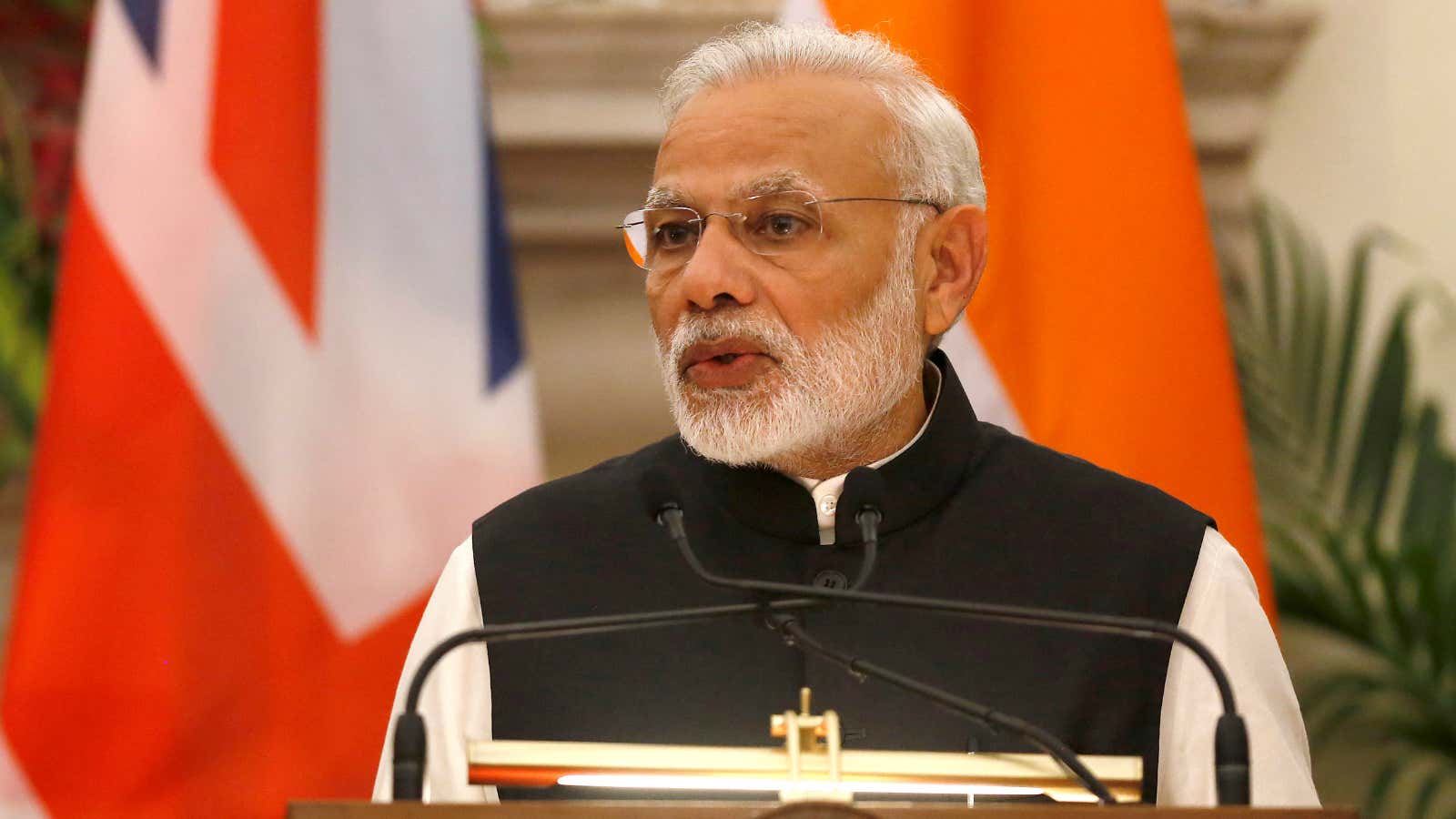As millions across India struggled to get their hands on some usable cash, Narendra Modi on Nov. 13 made a strong appeal, asking them to remain calm and support him in his endeavour to root out black money.
In a speech that sought to carry forward the message of his government’s battle against unaccounted wealth, Modi asked for 50 days to prove that his move to demonetise almost 86% of India’s currency notes—by value—was the right one.
On Nov. 08, in another address to Indians, Modi had declared notes of Rs500 and Rs1,000 denominations invalid beginning midnight that day. The government announced a 50-day window during which Indians could deposit all their cash. Since then, banks across the country have been working hard to disburse the new currency notes.
Modi’s Nov. 13 speech, during which he even broke down at one point, came in the backdrop of millions of Indians being left with little or no cash following the demonetisation. Over the past few days, in many cities, queues at ATMs and banks have stretched more than two kilometres, even as nearly half of India’s 202,000 ATMs remained shut.
“Yes, I, too, feel the pain,” Modi said in Goa on Nov. 13, after laying the foundation stone of a greenfield airport at Mopa plateau. “These steps taken were not a display of arrogance. I have seen poverty and understand people’s problems.”
In the emotionally-charged appeal, he reiterated his nationalist credentials.
Modi said his government was determined to find all the money “looted in India and has left Indian shores” over the past many decades. He took a dig at his critics, particularly the opposition such as the Congress party, saying, “Those involved in big scams now have to stand in queues to exchange Rs4,000.”
The Congress-led United Progressive Alliance government, which ruled India for a decade till May 2014, was mired in several scams. Last week, Congress vice-president Rahul Gandhi was seen queueing up before an ATM, evoking criticism of his attempts at a “photo-op” in the wake of the demonetisation.
“You’ll be shocked to know that many MPs asked me not to make PAN mandatory for any purchase of jewellery,” Modi told the audience at Goa.
This scheme of the government has been its biggest move so far in its battle against illegal wealth. Curbing black money was part of his Bharatiya Janata Party’s poll manifesto in 2014. This year, the government had launched an amnesty that allowed people to declare their illegal wealth by Sept. 30, 2016. By Oct. 01, only some Rs65,250 crore of black money was declared under this scheme, which is merely a little over 2% of the total estimated wealth that is unaccounted for.
Currently, India’s black money economy is at about 20% of its GDP, according to estimates from Ambit Research.
On Nov. 13, Modi sought Indians’ backing for the “honest job” of finishing off this menace.
“I know of the forces up against me. They may not let me live, they may ruin me because their loot of 70 years is in trouble, but I am prepared,” Modi said. “If I commit any mistake, I am ready to face any punishment the country will give me. But I promise to deliver a corruption-free India,” the prime minister added.
